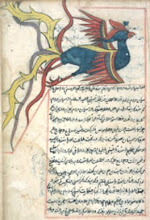Dorothy Porter was never going to go out with a whimper. The Australian poet who once claimed to write best to the tribal din of Melbourne's Hunters & Collectors was a poet utterly transfixed by life. I only knew her in passing, but from what I can glean Dorothy seemed to regard death (her own came earlier this year after a long and courageous fight against breast cancer) as merely one more aspect of life, not its polar opposite. Her last, and perhaps her finest, collection of poetry, The Bee Hut, was written very much in this spirit
have I the strength
to pay suffering its due?
she asks in "The Ninth Hour", one of the most technically accomplished, moving and strangely exhilarating poems about death and dying I have ever read. There is Porter's characteristic tone of defiance here, but for once she is not raging like Xerxes, for
I have come to a river
of blood and vinegar
I have come to a river
where only pain
keeps its feet
and she appears transfixed by this new challenge life has thrown up at her. It is a courage perhaps unique to poets, a courage that knows its limits, and by this very knowledge seems amplified.
Let me join the frilled and flying
damned
and live vivid
as a wet dog.
- "After Bruegel"
After her final verse novel, El Dorado, I wasn't so sure what to expect from Dorothy Porter. Despite a perception in some quarters, I buzz far from the inner circle of Australian literati and simply assumed she had recovered from whatever it was that ailed her. My first instinct was that Dorothy was caught in no-man's-land with a few too many quivers in her bow - poet, novelist, librettist. - but with the phallanx of Australian literati to protect her. For, as compelling an achievement as her best-selling verse-novel, The Monkey's Mask, undoubtedly was, the two that followed will slowly fall between the stools. I doubt I was alone in missing the edgy 3 am dance of Porter's earlier collection, Crete, the deliciously tender mischief of
No sensible woman eats poppies
or else
she'll dance
she'll fall over
she'll wake up
with a woman in her arms.
- "Or Else" (from "Crete", 1996)
A poet living in the very act of writing, of picking herself up just as she is falling. I can't tell you how many times I have heard writers complain about how writing drains them when, as Dot Porter knew only too well, it should in fact do the very opposite, for
You can't preserve love
behind foggy windows.
Often when I read American ex-pat, Linda Gregg, I think of Dorothy Porter back in her Crete days of the early 90's, so tender with love, and I can almost sniff the light dancing on that almost interstellar blue of the Mediterranean, but Gregg always manages to break the spell because beneath it all dwells something intent on pulling her down, on harvesting her flesh, her womanhood (by which I, as a man, cogitate freedom). Dorothy Porter's poetic spirit, on the other hand, shouldered up to the breeze and laughed with the ripples and spat in the face of the necromancer casting a shadow over her towel. She could not help herself, for she was mad with life, or at least the poet in her was. Beauty was everywhere in her dusky, wide-set eyes, and in this an early trill in her parting song, we have the imprimatur of Dot Porter's distinct brand of living ( dare I say a very Australian brand of living?)
I can't shake
that ghost-town pub
whistling empty-bottled
through its black windows,
and its strangled verandahs
creaking with a terrifying
ancient thirst
under a two-storey coat
of bristling blackberry.
Is it taunting me
with the dancing skeleton
tune
of my own life's mystery
struggling for rhythm
and lyrics?
I hold in my hand
the greedy, bleeding
pen
that has always
gorged itself.
The bliss-mouthed
gluttony miracle -
that stained Keats
grape-purple
that had cynical Byron
reeling on the ceiling -
when the plump berries
sing
and your pen slashes ahead
like a pain-hungry prince
hacking through
the bramble's dragon teeth
to the heart's most longed-for
comatose, but ardently ready
princess.
- "Blackberries" (from The Bee Hut)
Well, I imagine you can sleep easy princess. Your legacy is safe.
















